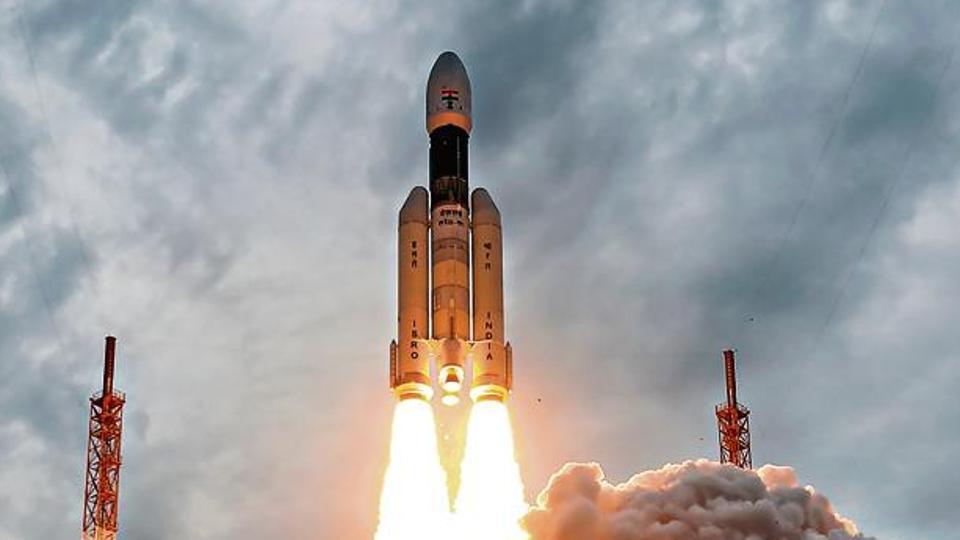
Indian Space Research Organization (ISRO) is an esteemed space research organization which is controlled by the government of India. It is headquartered in Bangalore and was established on 15th August 1969. It has a budget of Rs 79.27 Billion for the year 2015-2016. Its aim is to harness space technology for national development while pursuing space science research and planetary exploration. It was founded by the first prime minister of India, Jawaharlal Nehru along with the scientist, Vikram Sarabhai. ISRO was originally established in 1962 as INCOPAR (Indian National Committee for Space Research) which later on grew into ISRO.
Ever since its foundation, ISRO has touched various milestones. ISRO built India’s first satellite, Aryabhatta, which was launched by the Soviet Union in 1975. Rohini became India’s first satellite to be placed in orbit by an Indian made launch vehicle. Through all these years, ISRO’s achievements have roared in every part of the world. The work and dedication of the scientists of ISRO cannot be ignored.
ISRO was established 8 years after Pakistan established the Space and Upper Atmosphere Research Commission (SUPARCO) in 1961. ISRO has completed 120 missions and 74 satellite launches, but SUPARCO has only been able to launch two satellites (both from foreign soil and with foreign assistance). ISRO is one of those six space agencies who have the capability to build and launch satellites from their own soil. We Indians are clever, not miser, this statement can be justified with the fact that ISRO’s last 40 years expenditure is about half of NASA’s single-year budget. How cool is that, right?
Recently, ISRO was applauded worldwide for sending Mars orbiter successfully in the first attempt and as the social media says, the budget of the project was way less than that of the movie “Gravity”. It cost Rs 450 Crores i.e. Rs 12 per Km, equivalent to auto fare.
ISRO’s last Reddit AMA was held about 8 months ago, where the ISRO scientists answered random people. The best take away from this session was that many of the scientists there are still single (and have a sense of humour as well). The most famous APOLO 11 was launched in the same year ISRO was established. We have to admit the fact that the USA was way ahead from us.
There was a time when India requested America for GPS support, but they refused. And now in 2016, Indian rocket is carrying the same American satellite along with nineteen other into the orbit. Not feeling proud yet?
Here’s the mind fuck fact, you can actually buy satellite data at a very nominal rate.
A normal day for a scientist at ISRO:
Most people who live nearby, wake up at around 7:15 AM. Those who stay far away, wake up at 6:30 AM. They travel to the office, they read some research papers unlike other people reading the newspaper and discussing news. The office hours start by 8:30 AM, but it takes till 9 AM for everyone to settle down. The day starts for everyone by checking their mails which usually consists of orders, meeting schedule and reminders. After checking the mails, people start working as per the requirements, attending meetings, developing etc. 10:30 AM is the official tea time which usually lasts for 10 minutes. After the tea, work continues as per the routine.
The lunchtime is 12 PM. You have to head towards mess for the food but if you are in the middle of something important, a separate lunch is provided to you. 3 PM is the time for the second tea and after it, the work continues till 5 PM. Those scientists who stay far, leave at the time, but who stay near usually stretch till 6-7PM (usually bachelors). In project days, there is no time closure and if a procedure requires your presence, you would be called at any time round the clock.
Now the question arises, where do the people at work get their food? They have their internal canteen which usually serves rice, dal, chappati and various veggies. No ISRO meal is complete without a bowl of yoghurt. What if someone doesn’t like the food and would like to order a pizza? What would happen in that situation? Dominos doesn’t deliver because the security stops them. But if you desperately need a pizza, you will have to go to the main security checkpoint at the entrance and collect it.
We are aware of what work scientists do and the food they eat. The most important question which we always wondered, how much does an ISRO scientist actually earns and what the perquisites provided? ISRO has lots of perks, less than what many government organisations have, but still, more then what a person earning the same amount of money would have in the private sector. The pay is more than 6.5 Lakhs per annum without taxes. There are good insurances with nominal contributions. There is a health service scheme that provides access to multi and super speciality hospitals at a nominal monthly contribution.
Since ISRO deals in something extraordinary, it requires some huge amount of money to accomplish things in time. ISRO's allotted budget for the fiscal year 2013-14 was $950 Million. After getting to know the actual budget, many of you might be wondering what’s the need to spend so much into it when you can rather feed the poor with that amount of money? Let me tell you, NASA's budget for 2013 was about $18 Billion, which is approximately 0.5% of the total US budget. And the Indian budget was almost 19 times less and was about 0.33% of the total Indian budget. So ISRO is not taking a bite out of the poor and hungry Indian's pie.
Another question: Apart from rockets and satellites, where is the money used at? Through its remote sensing and communication programs (IRS and INSAT), ISRO is helping to build essential infrastructure for the country. Then, there is disaster management: it saved millions (of lives and dollars, both) by being well prepared for the cyclone Phailin. Remote sensing helps farmers and fishermen: the poor-hungry-Indians and enables them to buy food.
Impressed with the life at ISRO and want to work for them? You have to be an Indian with a degree/diploma in Mechanical/Electronics/Electrical/civil disciplines. There are posts available for Scientists, Technicians, Technical Assistants, Admin Officers, and Purchase Officers etc being offered depending on eligibility. There will be an exam for each type of post followed by interview for selection. One can also get into ISRO by enrolling into IIST complete the course and get absorbed.

